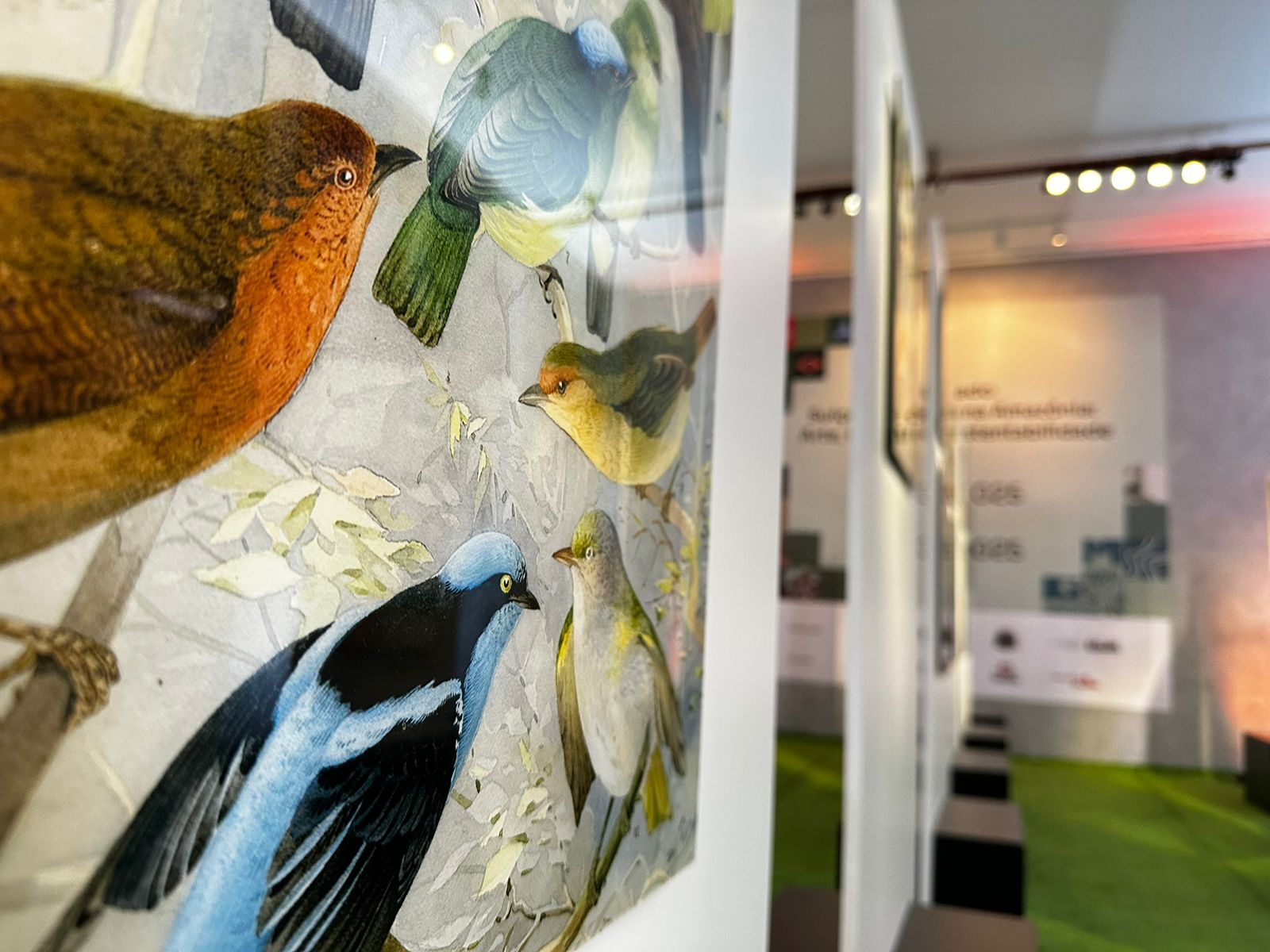How_do_the_microplastics_in_our_bodies_affect_our_health.txt
'Rubbish and dull. Pointless' How Lord of the Flies was rescued from the reject pile.txt
'Rubbish and melhor jogo de ps4dull. Pointless': How Lord of the Flies was rescued from the reject pileSkip to contentBritish Broadcasting CorporationRegisterSign InHomeNewsSportBusinessInnovationCultureArtsTravelEarthAudioVideoLiveHomeNewsIsrael-Gaza WarWar in UkraineUS & CanadaUKUK PoliticsEnglandN. IrelandN. Ireland PoliticsScotlandScotland PoliticsWalesWales PoliticsAfricaAsiaChinaIndiaAustraliaEuropeLatin AmericaMiddle EastIn PicturesBBC InDepthBBC VerifySportBusinessExecutive LoungeTechnology of BusinessFuture of BusinessInnovationTechnologyScience & HealthArtificial IntelligenceAI v the MindCultureFilm & TVMusicArt & DesignStyleBooksEntertainment NewsArtsArts in MotionTravelDestinationsAfricaAntarcticaAsiaAustralia and PacificCaribbean & BermudaCentral AmericaEuropeMiddle EastNorth AmericaSouth AmericaWorld’s TableCulture & ExperiencesAdventuresThe SpeciaListTo the Ends of The Earth EarthNatural WondersWeather & ScienceClimate SolutionsSustainable BusinessGreen LivingAudioPodcast CategoriesRadioAudio FAQsVideoLiveLive NewsLive SportHomeNewsSportBusinessInnovationCultureArtsTravelEarthAudioVideoLiveWeatherNewsletters'Rubbish and dull. Pointless': How Lord of the Flies was rescued from the reject pile16 September 2024ShareSaveGreg McKevittShareSaveGetty Images(Credit: Getty Images)William Golding's novel Lord of the Flies was first published on 17 September 1954, and is now recognised as a classic. In History looks at how Golding's story of English schoolboys and their descent into barbarism narrowly escaped being thrown in the bin."Write what you know" is advice often given to aspiring authors, and Lord of the Flies is a spectacular example of how clichés can still contain essential truths. A teacher at a boys' school who had witnessed first-hand the inhumanity of World War Two, William Golding condensed this knowledge and experience into his debut novel, a deceptively simple tale of shipwrecked boys reverting to savagery on a desert island. Its subversion of a familiar plot went on to resonate with generations of readers, and serve as a grim warning that the evils of Nazi Germany could be repeated anywhere. Golding was about to turn 43 when Lord of the Flies was first published. His big idea was a sinister 20th-Century reimagining of The Coral Island, RM Ballantyne's 1857 tale of derring-do in which a group of shipwrecked British schoolboys civilise a desert island, making it a playground for fun and games. Much of his original manuscript was handwritten on exercise books during school time. He even worked on the novel during lessons, while his pupils were occupied with their textbooks. A few of them were tasked with counting the number of words he'd written per page.4:08WATCH: 'What matters to me is that there shall be a beginning, a middle and an end'.In 1953, Golding sent his novel to nine publishers, all of whom rejected it. Undaunted, he offered the manuscript to Faber and Faber, one of the most prestigious London firms. It was picked up by Charles Monteith, a junior editor who had only worked at the publishing house for a few months. The signs were not promising.Absurd and uninterestingHe told the BBC's Bookmark in 1984: "Already there was one particular sort of thing I could spot, and that was the tired, weather-beaten old manuscript that had been around a lot of publishers before it reached us, and this was very much that. It was a large yellowing manuscript with the pages beginning to curl, and one or two stains for teacups that were put on them, or wine glasses, and drops of coffee and tea spilled, and was bound in rather depressing, hairy brown cardboard, and there was a short, formal covering letter."One of the publisher's professional readers had already delivered her written verdict on Golding's manuscript, dismissing it as an "absurd and uninteresting fantasy". Along with a circled R for "reject", she wrote: "Rubbish and dull. Pointless."Fortunately for Golding, Monteith gave the book another go, and decided to save it from oblivion. He said: "I had a look, and I must say I wasn't at all attracted by the beginning of it, but eventually I went on and got absolutely caught up by it. And from then on, I said 'we must take this seriously'."He persuaded Faber and Faber to publish the book, but Golding first had to make some significant changes to the text. Also, its original title, Strangers from Within, had to go. According to Golding biographer Professor John Carey, the original manuscript was a religious novel that was "drastically different from the Lord of the Flies most people have read".Capacity for evilSpeaking on 2012 Arena documentary The Dreams of William Golding, Carey said that the author became deeply religious following World War Two, when he had served on a Royal Navy destroyer, but his editor Monteith's revisions excised these elements. "Golding concedes, concedes, concedes, until what came out is a novel that is secular; it's not assuming any supernatural intervention," he said. Golding's experience of war gave him a deep sense of man's capacity for evil and a disillusionment with the idealistic politics of his early life. Lord of the Flies was his warning that the Nazism that engulfed Germany in the 1930s could happen in any civilised country. Speaking on The South Bank Show in 1980, he explained how the war transformed his attitude to human nature.The difference was the boys were real boys – they acted the way that I understood boys acted – Stephen King"It simply changed because, bit by bit, we discovered what the Nazis had been doing. Here was this highly civilised race of people who were doing, one gradually found out, impossible things. I remember, in those days, saying to myself, 'Yes, well, I have a Nazi inside me; given the right circumstances, I could have been a Nazi.'"Bit by bit, as I discovered more and more what had gone on, that really changed my view of what people were capable of, and therefore what human nature was. So that political nostrums, if you like, seemed to me just to fall flat on their face in front of this capacity man had for a sort of absolute evil."In HistoryIn History is a series which uses the BBC's unique audio and video archive to explore historical events that still resonate today. Subscribe to the accompanying weekly newsletter.Although Lord of the Flies had been a critical success, it wasn't until the publication of the US edition, and particularly the paperback in 1959, that Golding became an international bestselling author and started to earn large amounts in royalties. The success allowed him to quit his teaching job and become a full-time writer. "I didn't like the systematic side of teaching; I'm not a very systematic person," he admitted to Bookmark in 1984.More like this: ? The WW1 trauma that inspired The Lord of the Rings? The life-changing day World War Two began? The one thing George Orwell’s 1984 got wrongOn his status as a literary late bloomer, he said that his breakthrough came when he realised he had to stop imitating other writers. "It wasn't until I was 37, I suppose, that I grasped the great truth that you've got to write your own books and nobody else's, then everything followed from that," he told Monitor in 1959.One young fan of Lord of the Flies was the novelist Stephen King, who borrowed the book from a mobile library after requesting something about "the way that kids really are". He told Arena in 2012: "I was completely riveted by the story from the very beginning because it was like a boys' story, the ones that I was accustomed to. The difference was the boys were real boys – they acted the way that I understood boys acted."A storyteller through and throughKing went on to set several stories in the fictional town of Castle Rock, which he named after Jack's mountain fort in Lord of the Flies. From cult 1990s backpackers story The Beach to teenage cannibalism drama Yellowjackets via the obligatory Simpsons parody, Lord of the Flies has become a pop culture touchstone. The book was twice adapted for film in 1963 and 1990, and a BBC television adaptation by screenwriter Jack Thorne is currently being filmed in Malaysia.An original and deeply imaginative author, Golding would go on to write books about the final days of Neanderthal people, a sailor marooned on an Atlantic rock, and the building of a spire on a medieval cathedral. In 1983, he was awarded the Nobel Prize for Literature "for his novels which, with the perspicuity of realistic narrative art and the diversity and universality of myth, illuminate the human condition in the world of today".For Golding, the secret of his success was itself almost a cliché. He told Bookmark in 1984: "I am at bottom and at top, too, a storyteller through and through. What matters to me is that there shall be a story with a beginning, a middle and an end."--For more stories and never-before-published radio scripts to your inbox, sign up to the In History newsletter, while The Essential List delivers a handpicked selection of features and insights twice a week.For more Culture stories from the BBC, follow us on Facebook, X and Instagram.In HistoryBooksWarFeaturesArtsWatchJapan's photo tomb that contained a historic legacyThe Japanese photographer who buried hundreds of photos and the journey to revive his legacy.2 days agoTime FrameHow a performance lab is putting musicians to the test BBC Click visits a simulator lab that allows musicians to practice performance in real-world conditions.17 Jan 2025InnovationThe technology powering the iconic Sydney Opera HouseBBC Click heads behind the scenes of the Sydney Opera House to explore the tech powering the famous landmark.3 Jan 2025TechnologyHow the surreal 'Dali Atomicus' was capturedIn 1948 a famous artist and an innovative portrait photographer attempted to create something unbelievable.10 Dec 2024Time FrameWhy Cher has waited until now to write her memoirCher explains why she has finally written her memoir and who it's for.2 Dec 2024BooksA look inside Michelangelo's 'secret room'The BBC gets access to Michelangelo's 'secret hiding room' under the Medici Chapel in Florence.2 Nov 2024Art & DesignAI v The Mind: Meet the world's first artist robotWe find out how AI blurs the line between creation and automation, raising questions about the essence of art.18 Oct 2024InnovationShahmaran: The mythical symbol inspiring Turkish artistsThe 'Shahmaran', half-woman and half-snake, is a mythical figure popular in the folklore of Turkey. 12 Jul 2024Art & DesignThe legendary soprano making a differenceDame Kiri Te Kanawa has enjoyed one of the longest careers in operatic history.2 Mar 2024OperaStriking images of women in the Black Panther PartyStephen Shames' photography offers a radically new and candid picture of the militant black power organisation.24 Feb 2024BooksCallas at 100: 'This is the stuff legends are made of'Zeinab Badawi heads to Athens to celebrate the centenary of the birth of opera soprano Maria Callas.8 Jan 2024OperaWhat do we mean when we talk about 'Islamic art'?Art critic Alastair Sooke travels to Doha to discover some of the treasures of the Museum of Islamic Art.20 Dec 2023Art & DesignThe Doha Hind: The charming 10th-Century garden ornamentArt critic Alastair Sooke learns about a decorative 10th-Century treasure at Doha's Museum of Islamic Art.20 Dec 2023Art & DesignBlue Quran: A rare 1,000-year-old masterpieceArt critic Alastair Sooke learns about a masterpiece of the Islamic world at Doha's Museum of Islamic Art.20 Dec 2023Art & DesignBehind the scenes at La Scala in MilanZeinab Badawi takes us behind the scenes at La Scala in Milan to find out how magic is made.11 Dec 2023OperaThe journey to become an opera singerWe travel to La Scala in Milan, Italy the iconic stage where every opera singer dreams of performing.11 Dec 2023OperaJapan's ancient art of Taiko drummingVisually-impaired content maker Lucy Edwards learns about Japan's ancient art of Taiko drumming.27 Nov 2023Culture & ExperiencesInside the harem where East meets WestJoin art critic Alastair Sooke in Istanbul as he uncovers the intriguing relationship between East and West.21 Nov 2023CultureJapanese sashiko: The art of stitching storiesSashiko is a 400-year-old Japanese stitching technique. What makes it unique?10 Nov 2023StyleThe naked portrait covered up for centuriesArtemisia Gentileschi: Revealing the true beauty of a censored painting.3 Nov 2023ArtMore from the BBC14 hrs agoThe controversial sweet that fuels NorwegiansKnown as 'the trip chocolate', Kvikk Lunsj has fuelled outdoor adventures for generations. So, what makes this chocolate so controversial?14 hrs ago15 hrs agoHow women's pockets became so controversialWhy do men's clothes have so many pockets, and women's so few? For centuries, the humble pocket has been a flashpoint in the gender divide of fashion. Is that finally set to change?15 hrs ago16 hrs agoEarth has now passed peak farmland. What's next?The world's use of farmland has peaked, bringing the chance to turn over more space to nature. How far could the trend go?16 hrs ago2 days agoThe road trip that celebrates a musical legendMany towns and cities along the Blues Trail have planned festivals, exhibitions and live music to mark the 100th birthday of the homegrown musical legend.2 days ago2 days ago'He is an awful man': Why we are wrong about DarcyMostly miserable and even "unforgivably cruel", Jane Austen's famous romantic hero is not what he seems, writes the author Sebastian Faulks, in an exclusive extract.2 days agoBritish Broadcasting CorporationHomeNewsSportBusinessInnovationCultureArtsTravelEarthAudioVideoLiveWeatherBBC ShopBritBoxBBC in other languagesFollow BBC on:Terms of UseAbout the BBCPrivacy PolicyCookiesAccessibility HelpContact the BBCAdvertise with usDo not share or sell my infoBBC.com Help & FAQsContent IndexCopyright 2025 BBC. All rights reserved. The BBC is not responsible for the content of external sites. Read about our approach to external linking.
















